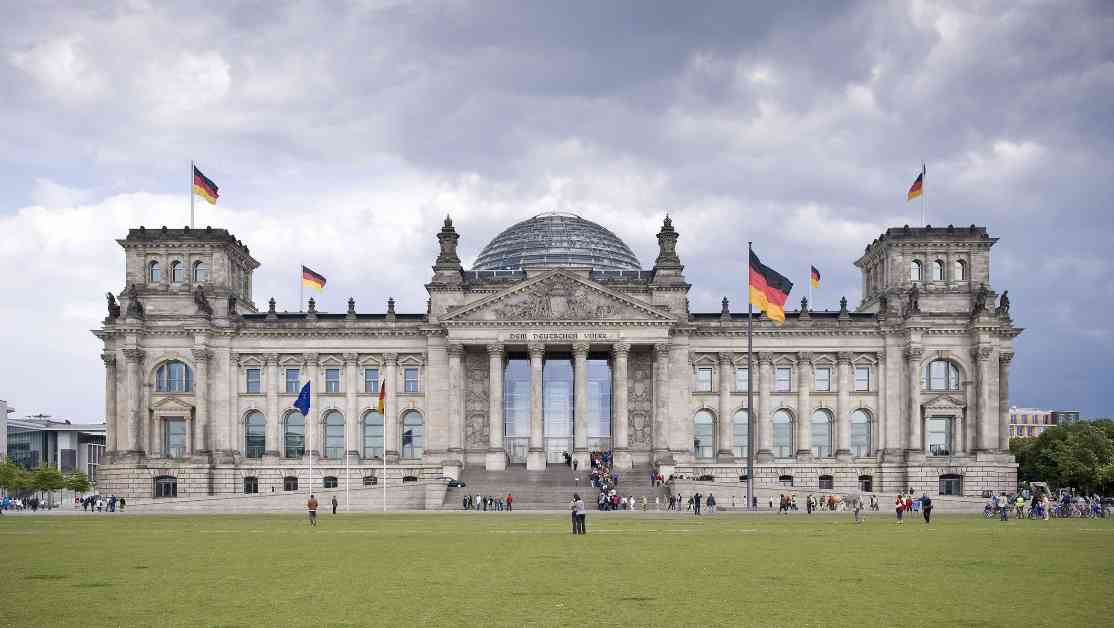German Parliament Requests €3 Billion Military Aid for Ukraine
The German Parliament’s Budget Committee has taken a significant step towards providing military aid to Ukraine by requesting Finance Minister Joerg Kukies to approve an additional 3 billion euros (€3.13 billion), according to sources from Reuters. This move comes amidst escalating tensions in the region and a pressing need for international support to bolster Ukraine’s defense capabilities.
Support for this request was garnered from the opposition Christian Democratic Union (CDU) and the Free Democrats (FDP), with both parties voting in favor. However, the governing Social Democrats (SPD) and Greens chose to abstain from the decision, highlighting the political divide within the German government on this issue.
The push for additional military aid comes at a critical time as Germany’s three-party governing coalition recently collapsed, leading to early parliamentary elections set for 23 February. The dismissal of Finance Minister Christian Lindner by Chancellor Olaf Scholz (SPD) served as a catalyst for this political upheaval, further underscoring the urgency of the situation.
Defense Minister Boris Pistorius and Foreign Minister Annalena Baerbock have been actively advocating for a new €3 billion military aid package for Ukraine, emphasizing the importance of standing in solidarity with the country amidst ongoing geopolitical challenges. On the other hand, Chancellor Scholz reportedly expressed reservations about the necessity of this aid, setting the stage for a robust debate within the German government.
While the Budget Committee lacks the authority to independently approve additional aid without the finance minister’s consent, historical precedents indicate that the ministry typically aligns with committee-approved requests. Members from the CDU and FDP have confirmed the availability of sufficient funds within the budget to accommodate this aid package, paving the way for further deliberations.
Chancellor Olaf Scholz, representing the SPD, has voiced his support for providing additional military aid to Ukraine. However, disagreements over spending priorities, particularly related to the suspension of the debt brake to facilitate extra borrowing, have been a point of contention within the German government. This disagreement, coupled with differing stances on financial policies, played a pivotal role in the coalition’s collapse.
The proposed €3 billion aid package would supplement the 8 billion euros already allocated for Ukraine in 2024, underscoring Germany’s commitment to supporting the country’s defense efforts. As Ukraine anticipates a gradual decrease in German aid to 4 billion euros in 2025, there is a growing recognition that Ukraine must begin transitioning towards self-sufficiency in meeting its military requirements.
In the broader context of international relations, the provision of military aid to Ukraine by Germany serves as a testament to the country’s commitment to upholding its responsibilities as a key player in global security. This decision also reflects the evolving dynamics of geopolitical alliances and the imperative of collective action in addressing shared challenges.
As the debate surrounding the approval of €3 billion military aid for Ukraine unfolds within the German government, the outcome of these deliberations will not only shape the future of Germany’s foreign policy but also have far-reaching implications for regional stability and security. The decision-making process underscores the complexities of balancing national interests with broader geopolitical considerations, highlighting the inherent challenges of navigating international relations in an increasingly interconnected world.

















